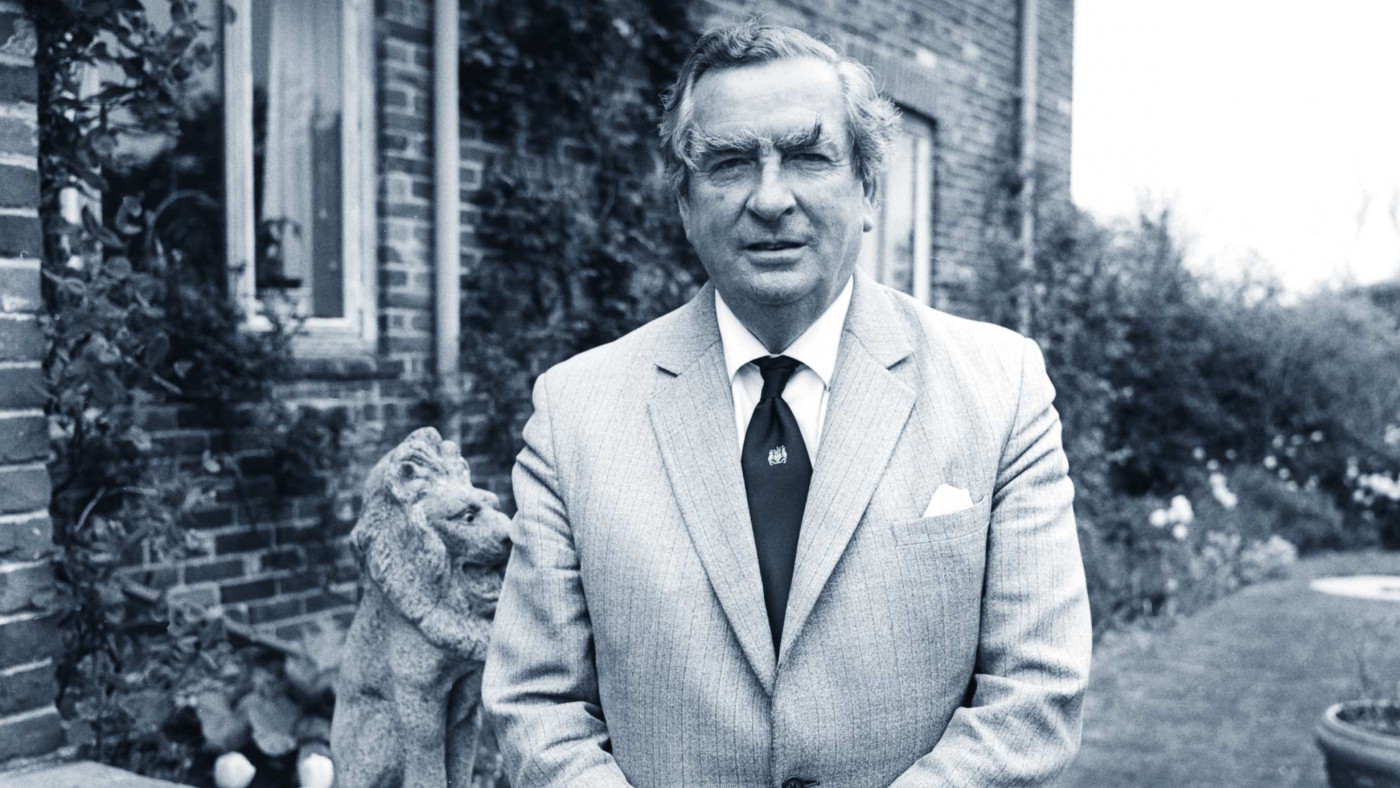Denis Healey’s life of public service was long and vibrant. As International Secretary of the Labour Party and a confidant of Ernest Bevin, he played an important role in anchoring Britain’s security in the transatlantic alliance. He was a highly effective Defence Secretary, a giant of postwar politics, and a man of culture and learning. He was also, if Andrew Roberts is to be believed, the worst chancellor of exchequer in history.
No. Andrew’s judgment is unsustainable even if you believe that Healey’s tenure at the Treasury was a disaster. The worst of chancellors was Healey’s immediate predecessor, Anthony Barber, who (in the words of Edmund Dell in his book The Chancellors) bequeathed a total breakdown in economic management.
Healey did more than pick up the pieces. He was the most consequential of postwar chancellors. Britain’s economy in the 1970s was characterised by unaccountable corporatism, wasteful industrial policy and inflationary public financing. The reforms that overhauled it didn’t start with the Conservative election victory in 1979, as partisans of Margaret Thatcher maintain. They were initiated by Healey in 1976.
Labour was elected in 1974 just a year after the quadrupling of world oil prices due to the OPEC cartel. By the time the party lost office, Healey had achieved his principal goal of reducing inflation (to just below 10 per cent) without a substantial rise in unemployment. A huge external deficit inherited from Barber had been turned into a surplus, partly because of North Sea oil but also because of Healey’s post-1976 deflation.
Certainly, Healey made big mistakes. The worst was his redistributive budget of 1974. It compounded the problem of inflation that Labour had inherited from the Heath government. Healey was also culpable for a damaging reflation in 1978-9, anticipating a general election. It wasn’t just a poorly designed incomes policy that caused an explosion of wages: it was Healey’s ill-judged stimulus too. The government’s attempt to impose sanctions on employers who exceeded its target for wage growth was a fiasco. Wage disputes and irresponsible strikes destroyed the government’s electoral standing and reputation.
All of this is true. Yet Healey’s chancellorship was radical. During it, Britain abandoned an approach that had led to the phenomenon of stagflation – the combination of weak growth and high inflation. The new approach was signalled by James Callaghan’s famous speech to the 1976 Labour conference, amid a sterling crisis, rejecting the simplistic orthodoxy of demand management.
Popular recollection of Healey’s chancellorship is dominated by his turning back at the airport amid a sterling crisis and his efforts to secure an IMF loan in 1976. To meet the conditions of the loan, Healey announced £3 billion of spending cuts. Controlling inflation became the overriding goal of policy and the Bank of England introduced monetary targeting. Even when sterling appreciated in 1977 and caused problems for exporters, those targets were adhered to.
Healey’s spending cuts made him a hate figure for Labour’s left and ensured that, despite his intellectual gifts and popularity with the voters, he would never become party leader. Yet it’s a record of achievement. He faced fierce opposition within the cabinet from the competing and incompatible forces of traditional social democracy, exemplified by Tony Crosland, and the far left, represented by Tony Benn. Crosland was far the more formidable opponent but his arguments were destructive. He believed that a system of import deposits (trade protectionism by another name) were a plausible alternative to spending cuts. Benn advocated a fantasy of nationalisation, planning agreements, reflation and import controls. It took raw political courage to face down these arguments and force a left-wing party to acknowledge the laws of arithmetic. The left preposterously condemned Healey for attacking workers’ living standards when in reality his policies did much to sustain them at a time of economic crisis. Contrary to the nostrums of his opponents, Healey recognised that anti-inflationary disciplines were crucial to achieving left-wing aims. And he was effective in this. Real spending power increased beyond rises in productivity. Contrary to Bennite demonology about Treasury orthodoxy, Healey was far ahead of his own officials in dispensing with crude Keynesianism and adopting cash limits.
It’s an alloyed record but an important one. Healey was a pioneer. Sir Geoffrey Howe, his Tory successor (and a far less weighty political figure), was the principal beneficiary.
Times have changed. Under its new leadership, Labour espouses policies that make Benn’s alternative economic strategy in the 1970s look sober and considered by comparison. As Industry Secretary in 1974-5, Benn merely wasted public money and some government time on hare-brained schemes for workers’ cooperatives. Labour’s new leadership advocates a policy of “people’s quantitative easing”. Translated, that means forcing the Bank of England to underwrite deficit financing for any purpose. If Jeremy Corbyn has targets for the public debt and budget deficit, he’s keeping them quiet. It’s a recipe for inflation, capital flight and a collapse in living standards. Labour once had a better way, and Denis Healey was instrumental in forcing the party to embrace reality.


